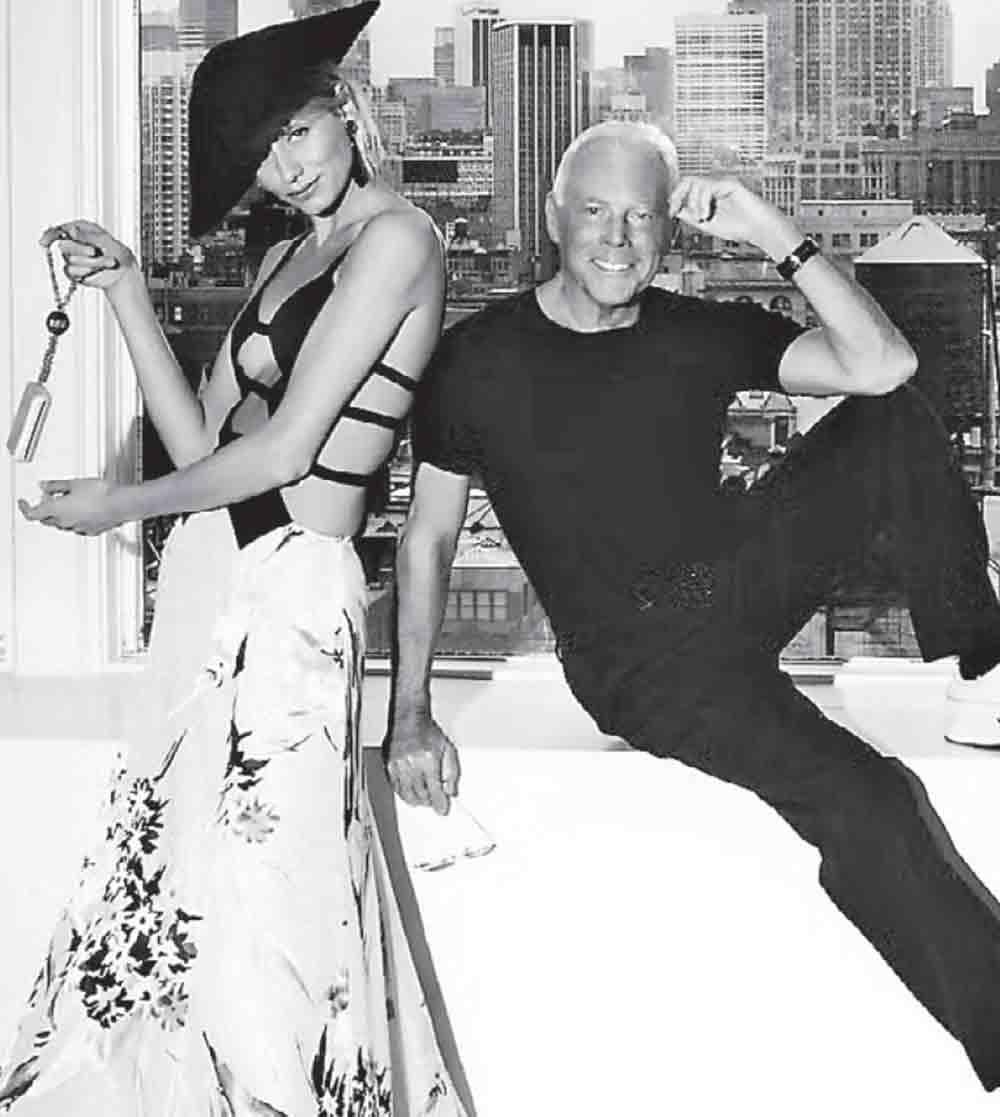
On September 4, 2025, the fashion world lost one of its greatest visionaries. Giorgio Armani, the Italian designer whose name became synonymous with understated elegance, passed away in Milan at the age of 91. His death marked the end of an era, yet his influence continues to shape the way the world understands style, luxury, and modern sophistication.
Early Life in Piacenza
Giorgio Armani was born on July 11, 1934, in the northern Italian town of Piacenza. His early life was marked by the hardships of wartime Italy, experiences that would shape his appreciation for discipline, structure, and resilience. Armani did not set out to become a fashion designer. Initially, he studied medicine at the University of Milan, but his fascination with aesthetics eventually drew him into the world of fashion. His career began humbly in 1957 at La Rinascente, Milan’s most prestigious department store. Armani worked as a window dresser and later as a menswear buyer, learning the fundamentals of presentation, quality, and consumer psychology. These early experiences exposed him to fabrics, tailoring, and the subtleties of style that would later define his career. He went on to join Nino Cerruti as a designer, where he honed his craft and developed the vision that would soon change the fashion industry forever.
Founding the House of Armani
In 1973 Armani established his own design office with Sergio Galeotti, a close professional partner and personal companion. Together, they laid the foundation for what would become one of the most successful fashion empires in the world. Two years later, in 1975, Giorgio Armani S.p.A. was born. The first collections included ready to wear for both men and women, a bold move that positioned Armani at the centre of the fashion revolution of the 1970s. What set Armani apart was his redefinition of tailoring. He created the soft, unstructured jacket that became his signature. Unlike the stiff, heavily padded suits of the time, Armani’s designs moved with the body, emphasizing natural lines and comfort without sacrificing elegance. This innovation was embraced by professionals, artists, and celebrities alike. Armani gave men a new look of relaxed confidence and gave women the power suit that became a global symbol of female empowerment in the workplace.

Hollywood and Global Fame
Armani’s influence expanded rapidly in the 1980s, largely thanks to his relationship with Hollywood. In 1980 Richard Gere appeared on screen in American Gigolo, dressed almost exclusively in Armani. The sleek suits, clean lines, and effortless glamour captured the imagination of audiences worldwide. Overnight, Armani became the designer of choice for film stars, musicians, and athletes. The red carpet soon became his second runway. From Julia Roberts and Michelle Pfeiffer to Leonardo DiCaprio and Jodie Foster, Armani’s gowns and tuxedos became staples of award season. His work did more than clothe celebrities; it redefined the relationship between fashion and film, turning premieres and galas into global showcases for his designs.
The Armani Empire
By the 1990s Armani was no longer just a designer but a brand architect. His empire expanded far beyond the original line. He launched Emporio Armani, Armani Exchange, Armani Jeans, and Armani Casa, each tailored to a different audience but bound together by a unifying philosophy of modern elegance. He collaborated with L’Oréal to create Armani Beauty, which became one of the most successful fragrance and cosmetics lines in the world. Armani even extended his influence into hospitality and architecture. Armani Hotels opened in Milan and Dubai, reflecting his vision of harmony and sophistication in interior design. His foray into sports included designing uniforms for Italy’s Olympic teams and for football clubs, as well as sponsoring basketball through Olimpia Milano. These ventures reflected his belief that style transcends clothing and permeates every aspect of life.
Philosophy of Design
At the heart of Armani’s work was a philosophy of minimalism, restraint, and timelessness. He often said that elegance is not about being noticed but about being remembered. His garments were never ostentatious. Instead, they carried a quiet authority, built on precise cuts, luxurious fabrics, and subtle details. For women, Armani created clothing that was simultaneously strong and sensual. The power suit, with its clean lines and neutral tones, allowed women to command boardrooms and political offices while retaining a sense of femininity. For men, he reinvented the suit as a garment of ease, stripping away excess structure and creating something fluid, refined, and undeniably modern. His approach also reflected a deep respect for individuality. Armani never dictated trends but offered a canvas for personal expression. This ethos allowed his designs to remain relevant across generations, untouched by the fleeting nature of seasonal fashion.

Social Responsibility and Influence
Armani was not only a designer but also a cultural force. He addressed social issues through his platform, advocating for healthier standards in fashion by banning excessively thin models and promoting sustainability in production. He became a pioneer in eco fashion, introducing environmentally conscious practices long before they were widely adopted in the industry. He was also a philanthropist. Through the Giorgio Armani Foundation, he supported initiatives in education, health, and humanitarian aid. His Clara Foundation was dedicated to his family’s memory, highlighting his strong ties to personal values and heritage.
Personal Life
Despite his global fame, Armani remained deeply private. He never married and had no children, devoting his life to his work and to the memory of Sergio Galeotti, who passed away in 1985. Armani often described Galeotti as the great love of his life and credited him with providing the encouragement and business acumen that enabled his success. Armani continued to honour Galeotti throughout his career, carrying his photograph and acknowledging his influence in interviews even decades later. Though reserved, Armani was known to those close to him as warm, witty, and deeply loyal. He maintained a rigorous daily routine, often beginning work early in the morning and personally overseeing every aspect of his collections. His perfectionism was legendary, but so too was his generosity toward his staff, many of whom remained with him for decades.
Honors and Recognition
Armani’s achievements were recognized with countless awards and honours. He received the Neiman Marcus Award for Distinguished Service in Fashion in 1979, the CFDA Lifetime Achievement Award in 1987, and the Knight Grand Cross of the Order of Merit of the Italian Republic in 2021. France honoured him as an Officer of the Legion of Honour in 2008. His exhibitions at the Guggenheim in New York and later at the Armani Silos Museum in Milan cemented his place in cultural history. The financial success of his company also reflected his unique position in the fashion industry. Unlike many of his peers, Armani retained full control of his business, making him one of the wealthiest designers in the world. His estimated net worth at the time of his death was over 12 billion dollars, yet he remained committed to his work until the very end.
Tributes and Farewell
The announcement of his passing was met with an outpouring of grief and admiration. Julia Roberts, Leonardo DiCaprio, Michelle Pfeiffer, and Victoria Beckham were among the many celebrities who paid tribute to him. Donatella Versace described him as a giant whose absence leaves an irreplaceable void. Italian Prime Minister Giorgia Meloni hailed him as a national treasure, while fashion leaders such as Bernard Arnault and Renzo Rosso recognized him as a visionary who elevated Italy’s standing on the global stage.

Legacy
Giorgio Armani’s legacy cannot be measured merely by garments or profits. He redefined modern elegance and gave the world a new vocabulary of style. The soft jacket, the power suit, the Hollywood gown, the fragrance bottle on a dressing table, the hotel room designed with perfect proportion; each carried the imprint of his genius. He liberated men from rigid tailoring and gave women attire that symbolized independence and authority. He demonstrated that fashion is not about excess but about harmony, balance, and subtle power. His approach was revolutionary yet timeless, as relevant today as it was half a century ago. Armani also changed the business of fashion. He proved that a designer could expand into lifestyle, architecture, beauty, and sport without losing integrity. He built one of the most recognizable brands in the world while maintaining creative control and independence. Most importantly, he taught the world that elegance is not a costume but a way of life. His designs encouraged confidence, dignity, and authenticity. For millions of people who wore his clothes, Armani was not just a label but a philosophy.
As Milan prepares to celebrate the fiftieth anniversary of his fashion house, the timing of Armani’s passing feels poignant. The city that nurtured his rise will now become the custodian of his memory. In the streets of Milan, in boardrooms across the globe, on red carpets and in everyday wardrobes, his influence lives on. Giorgio Armani once said, “Elegance is not about being noticed, it is about being remembered.” As the world bids farewell to this extraordinary man, it is clear that he will be remembered not only for his clothes but for the way he changed culture itself..











